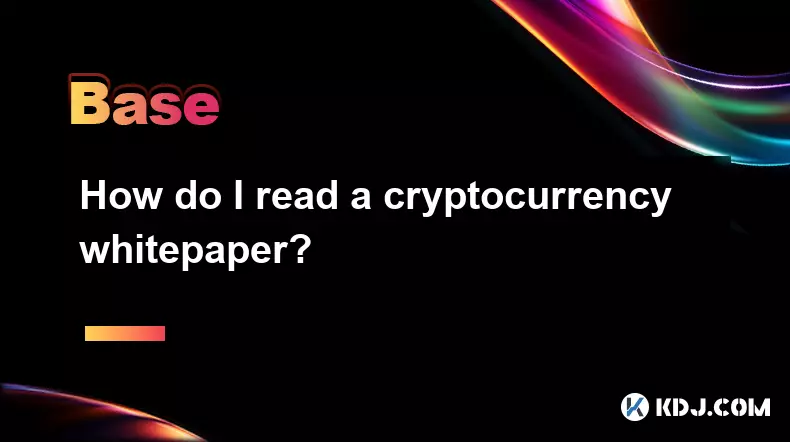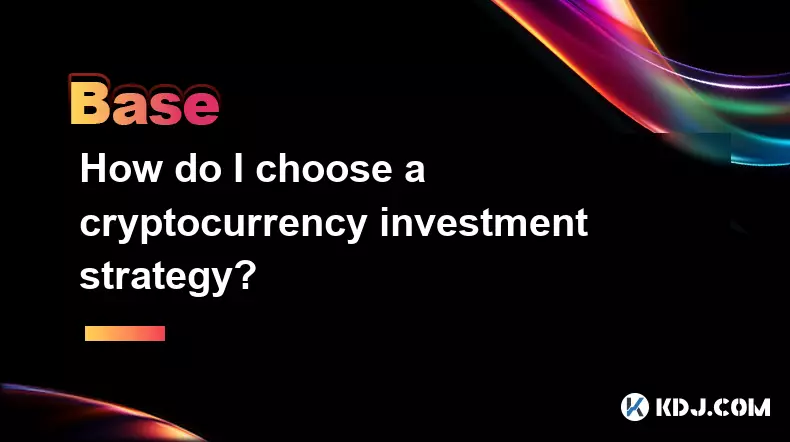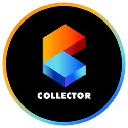-
 bitcoin
bitcoin $114779.865156 USD
2.30% -
 ethereum
ethereum $4226.519789 USD
2.39% -
 tether
tether $1.000545 USD
0.04% -
 xrp
xrp $2.890223 USD
0.92% -
 bnb
bnb $1030.029301 USD
2.95% -
 solana
solana $212.824944 USD
1.69% -
 usd-coin
usd-coin $0.999757 USD
0.01% -
 dogecoin
dogecoin $0.234961 USD
-0.27% -
 tron
tron $0.337174 USD
0.42% -
 cardano
cardano $0.804783 USD
0.09% -
 hyperliquid
hyperliquid $45.748770 USD
-2.85% -
 chainlink
chainlink $21.699170 USD
0.82% -
 ethena-usde
ethena-usde $1.001452 USD
0.08% -
 avalanche
avalanche $30.237800 USD
1.14% -
 stellar
stellar $0.372604 USD
1.52%
What are the differences between Web3 browsers and traditional browsers?
Web3 browsers use blockchain and IPFS to enable decentralized, trustless browsing with user-controlled identities and censorship-resistant content.
Sep 30, 2025 at 08:54 am

Understanding the Core Architecture
1. Traditional browsers operate on centralized infrastructure, relying on HTTP protocols to fetch data from servers located in specific geographic regions. These systems assume trust in intermediaries such as hosting providers and domain registrars. Web3 browsers, by contrast, are built on decentralized networks using peer-to-peer protocols like IPFS (InterPlanetary File System), enabling content retrieval based on cryptographic hashes rather than server locations.
2. In traditional models, website ownership is tied to domain names registered through ICANN-accredited registrars. Control over these domains lies with centralized entities that can censor or suspend access under regulatory pressure. Web3 browsers resolve domain-like identifiers through blockchain-based naming services such as ENS (Ethereum Name Service) or Unstoppable Domains, placing control directly in users’ wallets.
3. Data integrity in conventional browsing depends on the security practices of individual websites. If a server is compromised, altered content can be served without immediate detection. With Web3 browsers, every piece of content is cryptographically signed and verifiable against the originating smart contract or distributed ledger entry.
4. The backend logic of traditional web applications runs on private servers maintained by companies. Users have no visibility into how data is processed or stored. Web3 browsers interact with dApps (decentralized applications) where business logic resides in transparent, auditable smart contracts deployed on public blockchains.
User Identity and Authentication
1. Standard browsers use email-password combinations, OAuth logins via Google or Facebook, or other third-party identity providers. These methods create siloed profiles tracked across platforms for advertising and behavioral analysis. Web3 browsers eliminate the need for account creation; instead, they authenticate users through cryptocurrency wallet addresses linked to their digital signatures.
2. When logging into a dApp via a Web3 browser, the user signs a message with their private key, proving ownership without revealing credentials. This process ensures zero-knowledge authentication—no personal information is shared beyond what’s necessary.
3. Traditional identity systems are vulnerable to large-scale breaches because user data is aggregated in central databases. In Web3 environments, identity remains self-sovereign—the user holds full custody of keys, reducing systemic risk.
4. Browser extensions like MetaMask act as integrated wallets within Web3-capable browsers, allowing seamless interaction with decentralized finance platforms, NFT marketplaces, and DAO governance interfaces—all without surrendering control of assets.
Data Ownership and Monetization
1. On conventional browsers, user-generated content—comments, likes, uploaded media—is owned and monetized by platform operators. Algorithms decide visibility, often prioritizing engagement over authenticity. Web3 browsers shift this paradigm by anchoring content to blockchain records, making authorship immutable and transferable.
2. Creators interacting through Web3 browsers can attach programmable royalties directly into their digital works via NFTs. Every resale or usage event triggers automatic payouts, enforced by smart contracts rather than legal agreements.
3. Advertising models in traditional browsing rely on covert tracking mechanisms like cookies and fingerprinting. Web3 browsers enable opt-in data sharing, where users grant temporary access to behavioral patterns in exchange for tokens or premium features.
4. Decentralized storage backends such as Filecoin or Arweave allow users to host content permanently, resistant to takedown requests unless they voluntarily revoke access. This permanence supports censorship-resistant publishing, particularly valuable in restrictive jurisdictions.
Security and Trust Models
1. Traditional browsers implement security through certificate authorities (CAs) that validate HTTPS connections. A compromised CA can issue fraudulent certificates, enabling man-in-the-middle attacks. Web3 browsers bypass CAs entirely by validating site authenticity through blockchain consensus and content addressing.
2. Phishing remains a major threat in standard browsing due to URL spoofing and homograph attacks. Web3 browsers mitigate this by resolving human-readable domain names only if they are verified on-chain, reducing the attack surface significantly.
3. Malware distribution often occurs through malicious ads or compromised scripts loaded from third-party CDNs. Web3 browsers load front-end code from decentralized sources, where any alteration changes the content hash, alerting users to potential tampering.
4. Transaction transparency in Web3 browsers allows real-time auditing of interactions. Every approval request, token swap, or contract call appears in a clear interface, giving users granular control over permissions granted to dApps.
Frequently Asked Questions
How do Web3 browsers handle privacy compared to traditional ones?Web3 browsers enhance privacy by minimizing metadata leakage. Since they connect to decentralized networks, there’s no single entity collecting browsing history. However, blockchain transactions are public, so pseudonymity depends on wallet management practices.
Can I use a Web3 browser without owning cryptocurrency?Yes, you can browse decentralized content without holding funds. However, interacting with smart contracts—such as minting NFTs or voting in DAOs—requires gas fees paid in native network tokens.
Are Web3 browsers slower than traditional ones?Initial load times may be longer due to reliance on distributed networks like IPFS, which require nodes to locate and serve content. Performance improves as caching layers mature and adoption increases.
Do Web3 browsers support all existing websites?They support standard HTTP sites just like traditional browsers. Additionally, they natively render decentralized websites hosted on blockchains or IPFS, offering dual functionality across both ecosystems.
Disclaimer:info@kdj.com
The information provided is not trading advice. kdj.com does not assume any responsibility for any investments made based on the information provided in this article. Cryptocurrencies are highly volatile and it is highly recommended that you invest with caution after thorough research!
If you believe that the content used on this website infringes your copyright, please contact us immediately (info@kdj.com) and we will delete it promptly.
- BlockDAG, DOGE, HYPE Sponsorship: Crypto Trends Shaping 2025
- 2025-10-01 00:25:13
- Deutsche Börse and Circle: A StableCoin Adoption Powerhouse in Europe
- 2025-10-01 00:25:13
- BlockDAG's Presale Buzz: Is It the Crypto to Watch in October 2025?
- 2025-10-01 00:30:13
- Bitcoin, Crypto, and IQ: When Genius Meets Digital Gold?
- 2025-10-01 00:30:13
- Stablecoins, American Innovation, and Wallet Tokens: The Next Frontier
- 2025-10-01 00:35:12
- NBU, Coins, and Crypto in Ukraine: A New Yorker's Take
- 2025-10-01 00:45:14
Related knowledge

How does cryptocurrency achieve decentralization?
Sep 30,2025 at 04:37am
Understanding the Foundation of Decentralization in Cryptocurrency1. Cryptocurrency achieves decentralization primarily through the use of blockchain ...

What are some common methods of cryptocurrency market manipulation?
Sep 27,2025 at 02:55am
Wash Trading and Its Impact on Market Perception1. Wash trading involves an individual or entity simultaneously buying and selling the same cryptocurr...

How do I read a cryptocurrency whitepaper?
Sep 27,2025 at 05:54am
Understanding the Structure of a Cryptocurrency Whitepaper1. Begin by identifying the executive summary, which outlines the project’s core vision and ...

Can I recover lost cryptocurrency?
Sep 25,2025 at 08:18am
Understanding the Nature of Cryptocurrency Loss1. Cryptocurrency operates on decentralized networks, meaning there is no central authority to reverse ...

How do I choose a cryptocurrency investment strategy?
Sep 27,2025 at 03:55pm
Understanding Risk Tolerance in Crypto Investing1. Assessing personal risk tolerance is a foundational step when entering the cryptocurrency market. V...

How can I earn passive income from cryptocurrency?
Sep 23,2025 at 10:18am
Staking Cryptocurrencies for Regular Returns1. Many blockchain networks operate on a proof-of-stake (PoS) consensus mechanism, allowing users to earn ...

How does cryptocurrency achieve decentralization?
Sep 30,2025 at 04:37am
Understanding the Foundation of Decentralization in Cryptocurrency1. Cryptocurrency achieves decentralization primarily through the use of blockchain ...

What are some common methods of cryptocurrency market manipulation?
Sep 27,2025 at 02:55am
Wash Trading and Its Impact on Market Perception1. Wash trading involves an individual or entity simultaneously buying and selling the same cryptocurr...

How do I read a cryptocurrency whitepaper?
Sep 27,2025 at 05:54am
Understanding the Structure of a Cryptocurrency Whitepaper1. Begin by identifying the executive summary, which outlines the project’s core vision and ...

Can I recover lost cryptocurrency?
Sep 25,2025 at 08:18am
Understanding the Nature of Cryptocurrency Loss1. Cryptocurrency operates on decentralized networks, meaning there is no central authority to reverse ...

How do I choose a cryptocurrency investment strategy?
Sep 27,2025 at 03:55pm
Understanding Risk Tolerance in Crypto Investing1. Assessing personal risk tolerance is a foundational step when entering the cryptocurrency market. V...

How can I earn passive income from cryptocurrency?
Sep 23,2025 at 10:18am
Staking Cryptocurrencies for Regular Returns1. Many blockchain networks operate on a proof-of-stake (PoS) consensus mechanism, allowing users to earn ...
See all articles










































































